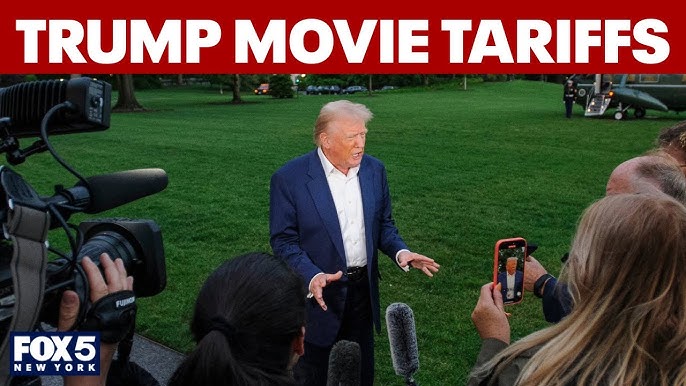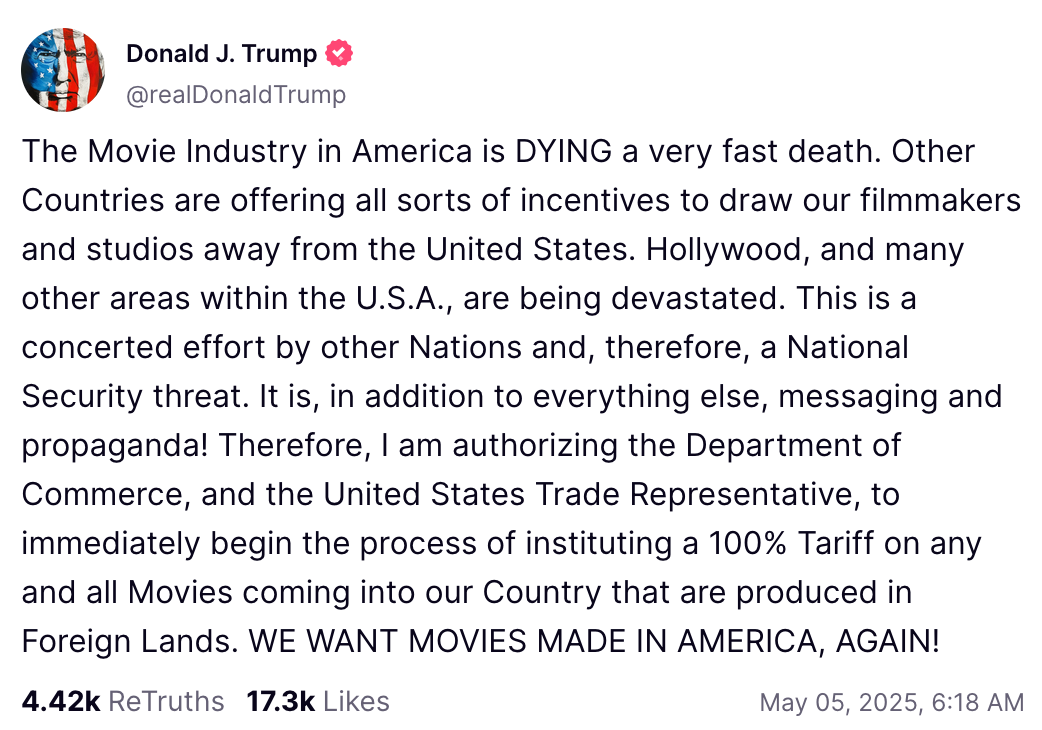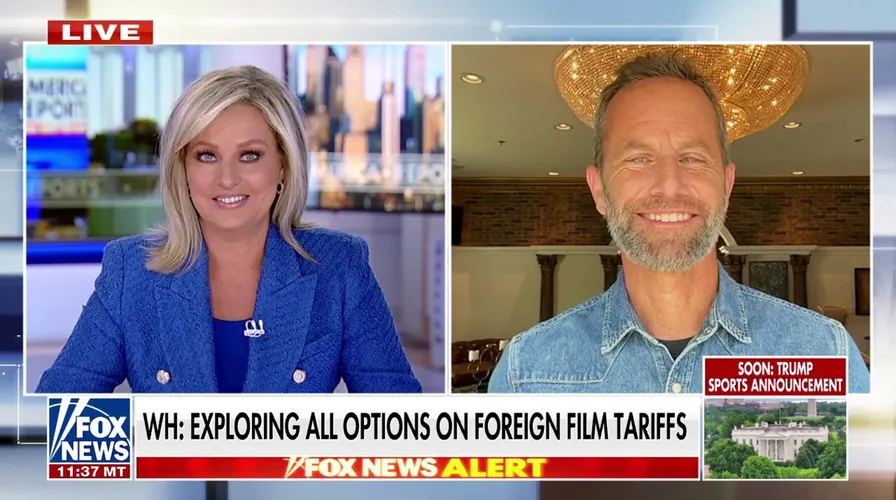Journalists should resist rampant speculation when it’s not attached to a tangible policy

Starting Sunday, I have had a succession of news outlets, mostly international, call me up to ask questions about President Trump’s pronouncement that he plans a 100% tariff “on any and all Movies coming into our Country that are produced in Foreign Lands.” My answer was pretty simple: No one has any idea what might happen, because it’s an idea with no specifics or clear structure.
What exactly would the tariff fall on? How exactly would the administration define a movie produced in a foreign land? How does raising the cost of making films outside America make it any easier to make films inside America? And does the President even have the legal authority to enact such a tariff in the first place?
Of course, this likely wasn’t the point of Trump’s bold statement, supposedly inspired by a more practical proposal suggested by Jon Voight, one of the President’s special ambassadors to Hollywood (I had the displeasure of meeting Voight at a press party many years ago, where I tried to ask him some questions about his conservative views, which he was articulating even then. I found him to be a passionate ideologue without a lot of logic behind his views.)
Instead, the movie tariff idea seems to follow a playbook Trump has developed for some of his big ideas, which involves releasing the news himself, without much warning or coordination with staff or allies, and leaving it to others to actually make sense of it. In the meantime, he dominates news coverage with stories that are mostly breathless speculation about what might happen, as his staffers and those affected by the proposed policy try to affect how it all turns out.

One crucial element to all of this is the continuous press coverage which creates pressure to do something. I don’t know how exactly journalists can resist falling into this dynamic – because it is so difficult to know what Trump will actually do until he takes action. Also, so much political and media coverage is focused on trying to be first to explain what will happen, instead of sussing out what is happening.
Still, I think it is important for journalists to stop playing into this game, avoiding extended reporting on proposed policies until an actual policy is revealed beyond a spicy social media post and a few statements at press conferences.
Already, The Hollywood Reporter has a story quoting Diego Mariscal, who runs Crew Stories, a popular online forum for below-the-line workers: “People I’m talking with are saying, ‘At least Trump’s doing something. When’s the last time a president even tried?’ He’s creating a conversation.” The Teamsters union has already voiced support for Trump’s idea.

But at what cost? Media companies like Netflix and Warner Bros Discovery saw significant drops in their stock price which cost billions in valuation. The movie business, which is clawing its way toward better profits after COVID lockdowns and strikes by actors and writers, remains seriously dependent on revenues from overseas markets (a look at the top 10 films with biggest revenues from last year reveals only one – Wicked – which didn’t earn more than half its receipts from outside America.).
What happens – that’s speculation, I know – if other countries respond with tariffs that threaten those revenues?
Bothering me most, is the way journalists have been used to float this trial balloon in the first place. In my interviews with news outlets, there was loads of pressure to speculate on the possibly calamitous potential of movie tariffs, with no evidence. I kept saying, “it’s like asking if the price of a car will go up, if the cost of the engine rises. Maybe you just find a cheaper carburetor.” But that didn’t seem to satisfy many interviewers, who pushed for sky-is-falling pronouncements to fit the hysteria of the moment.
Today’s movie, TV and streaming industries are complex entities with lots of global connections. Threatening the profitability of those connections — while claiming to advocate for more domestic U.S. production — seems more like a way to coerce public deference than spark serious discussion on practical solutions.
And I’m sure it didn’t hurt, for Trump’s purposes, that offering a bold solution for a problem that has for years vexed California Gov. Gavin Newsom – a Democrat who might emerge as a serious rival for the GOP in the next few years – might take him down a peg.
Perhaps studio executives and administration officials will find their way to a coherent policy which encourages more domestic film production. Newsom has already suggested domestic tax breaks would be more effective than tariffs. I wish any of this “debate” was the result of study and research aimed at finding fact-based strategies, instead of on-the-fly pronouncements which feel like trying to change a tire while the car is driving down the road.
Most of all, I wish news outlets would tamp down on speculation rather than encourage it in situations like this. So that politicians aren’t rewarded for public announcements which may have more political value than substantive roots in policy.